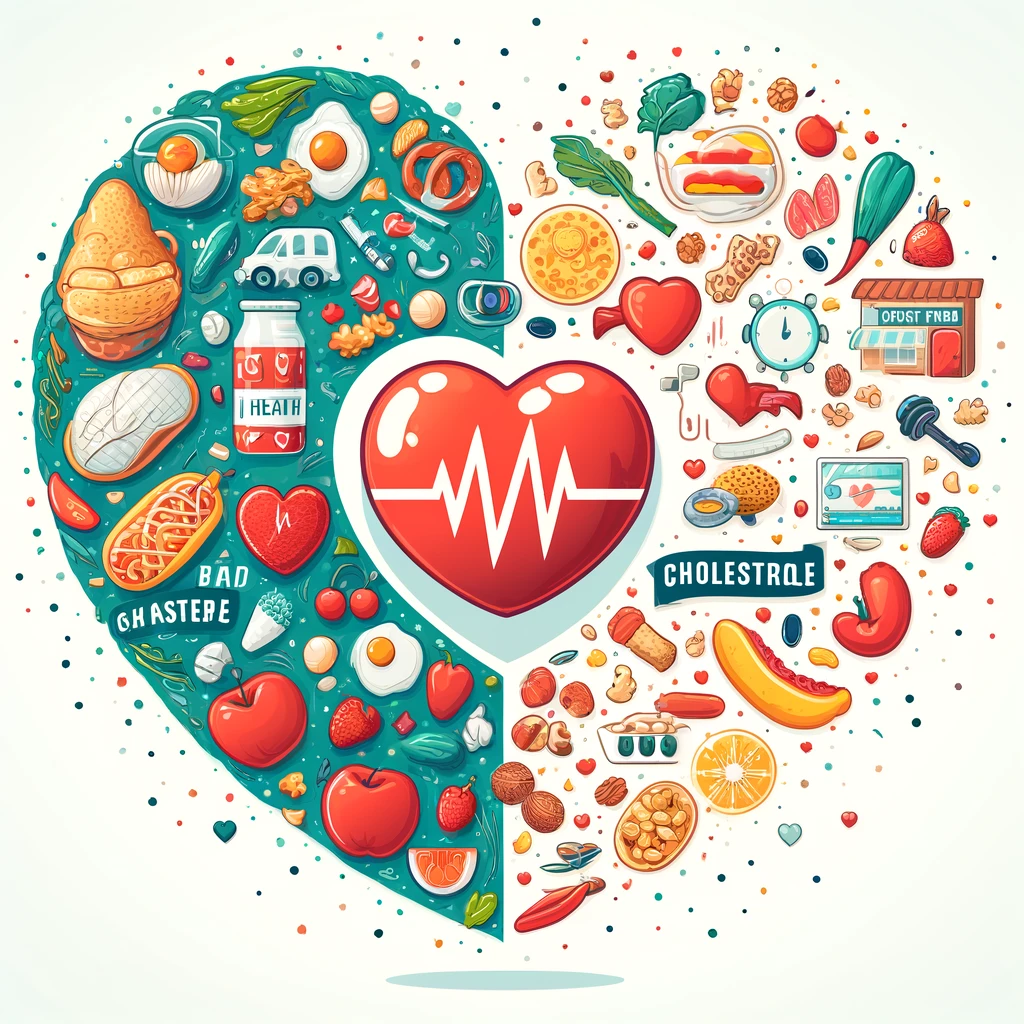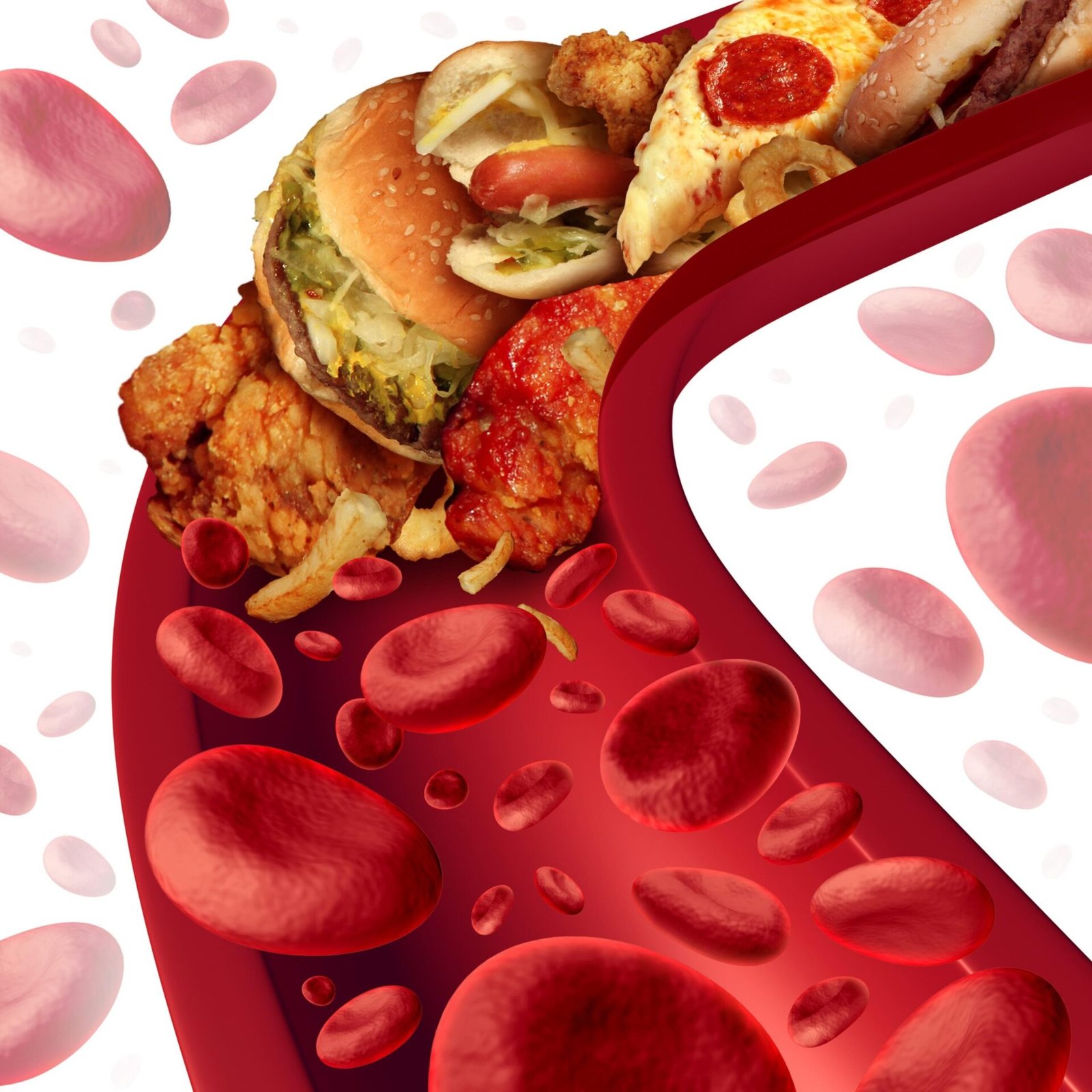
What is the first thing you think of when you want to help someone suffering from heart-related disease? I am sure these are on your list: fats, omega-3, saturated fats, unsaturated fats, cholesterol, triglycerides, atherosclerosis, smoking, stress, sleep, and more. Let us break down the science with some basic concepts to understand better what causes heart disease. This might help you figure out what you can do about it. Read through to know if cholesterol is really the bad guy, and if not, who?
The WHO defines cardiovascular diseases as “a group of disorders of the heart and blood vessels”. Globally, it is a leading cause of death.
Breaking the myth, cardiovascular disease (CVD) is NOT about cholesterol. In fact, cholesterol is the last bank robber running from the bank. What happened first is inflammation!
Biochemically, cholesterol is a fat-soluble molecule, i.e., it is insoluble in water and hence cannot move around freely in the body. Therefore, it binds with a molecule of protein to form a conjugated structure known as the lipoprotein (lipid + protein). There are two kinds of lipoproteins found in the human body:
- High-density lipoprotein (HDL), which we call the “good cholesterol”. It carries cholesterol from the periphery and cells that have used it back to the liver for disposal
- Low-density lipoprotein (LDL), which we call the “bad cholesterol”. It carries cholesterol from the liver to parts of the body where cholesterol is needed to do its work
What is the problem of cholesterol? It has an affinity for inflammation, particularly LDL. It attaches to the inflamed blood vessel. Consider our blood vessels as pipes in the body that carry blood from the heart to different organs and vice versa. So, an inflammation in the blood vessel can be visualized as a rust in this pipe. This causes an opening in the wall of the pipe where LDL deposits underneath. The immune system now recognizes cholesterol as a foreigner. The job of our immune system is to fight against any foreign substance by announcing an inflammatory response and sending macrophages (a type of white blood cell) to the site. They gobble up the cholesterol and get big enough. They eventually die and form foam cells (a type of macrophage that localize to fatty deposits on blood vessel walls). This further triggers a more potent immune response. This is what is known as a low-grade systemic inflammation. If this continues for a longer time, it gets chronic. This chronic systemic low-grade inflammation is silent and without any symptoms. Finally, one day, the doctor diagnoses the plaque underneath the endothelial lining and pushes it into the blood vessel wall that blocks the blood flow. That is how you get ischemic heart disease (heart damage caused by a poor flow of blood)!
In other case, the plaque gets bigger and cracks! The body cannot allow you to bleed and send all that is necessary to stop the blood- that clots the blood and fills up the remaining space in the blood vessel. Oh wait, that is named as a heart attack! The first visible symptom is chest pain upon exercise or when stressed.
What causes the inflammation?
- Carbohydrates: Refined carbs and sugars
The dogma for the past 50 years was that cholesterol is the bad guy. So, the food industry started manufacturing “low-fat foods”, which demanded added sugar, salt, and vegetable fat (considered good, but are highly processed fats)- which are all highly inflammatory
- Leaky mouth & a leaky gut: The more the number of harmful bacteria floating around our system that the immune system reacts to, the higher the potential inflammation being expressed as vasculature in the brain. A few symptoms include memory problems, brain fog, and shortness of breath, all of which lead to heart issues
- Other factors include food sensitivities and allergies, chronic stress, environmental toxins, physical inactivity, chronic infections, hormonal imbalances (insulin, cortisol, estrogen, and testosterone), genetic predisposition, and sleep deprivation.
Heart healthy foods:
| Category | Choices |
| Oils/cooking medium | Ghee, extra virgin olive oil, extra virgin coconut oil, mustard oil, butter, groundnut oil, sesame oil, etc. |
| Nuts | Groundnut, almonds, walnuts, cashew, pistachio |
| Seeds | Chia seeds, flax seeds, sunflower seeds, pumpkin seeds |
| Fruits | Eat the colours of the rainbow and a lot of berries! |
| Spices | Cinnamon, turmeric, garlic, ginger, coriander, cardamom, berberine |
Things to avoid:
- Margarine, trans fat, reused oil, commercially fried foods, refined oils, palm oil, vegetable oil
- Sedentary lifestyle with no physical activity
- Smoking and alcohol
- Chronic stress
- Improper sleep schedule
- High simple and refined carbs, processed and packaged foods, fast and instant foods, etc.
So, fats are bad for you; bad fats are bad for you!

